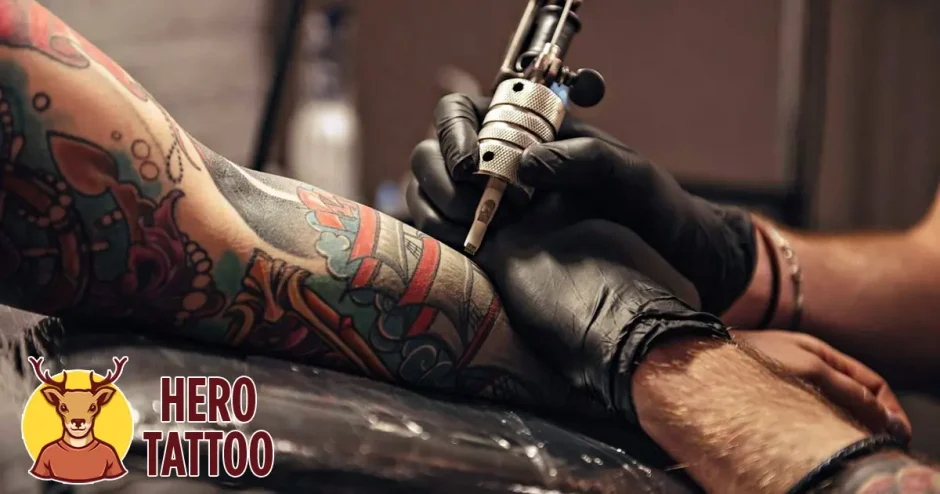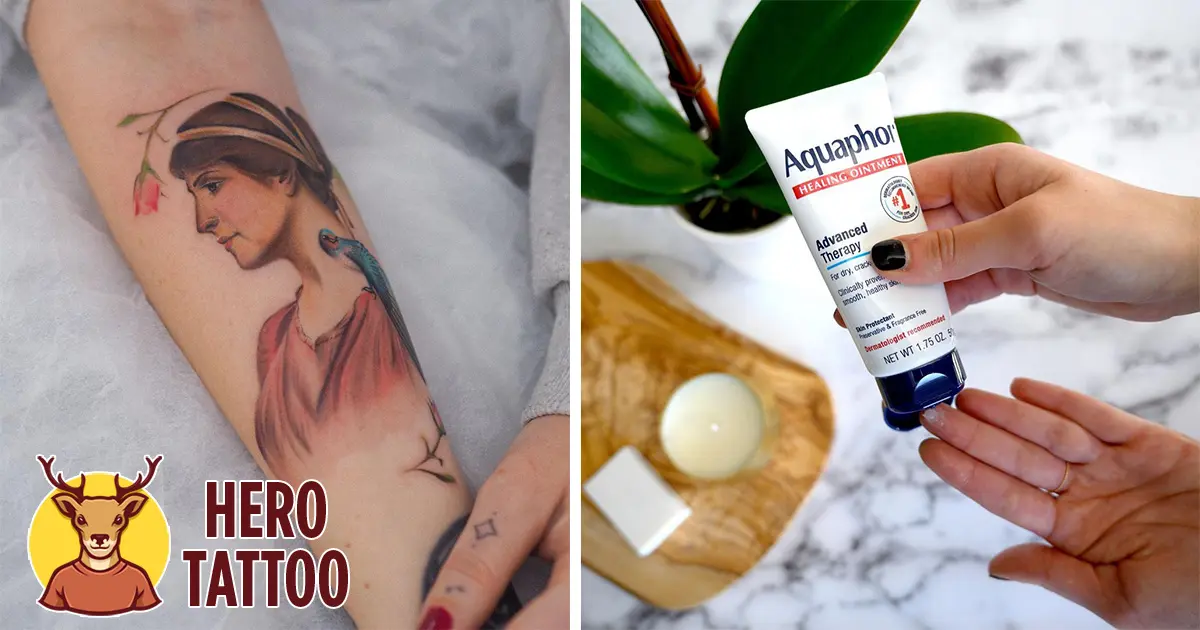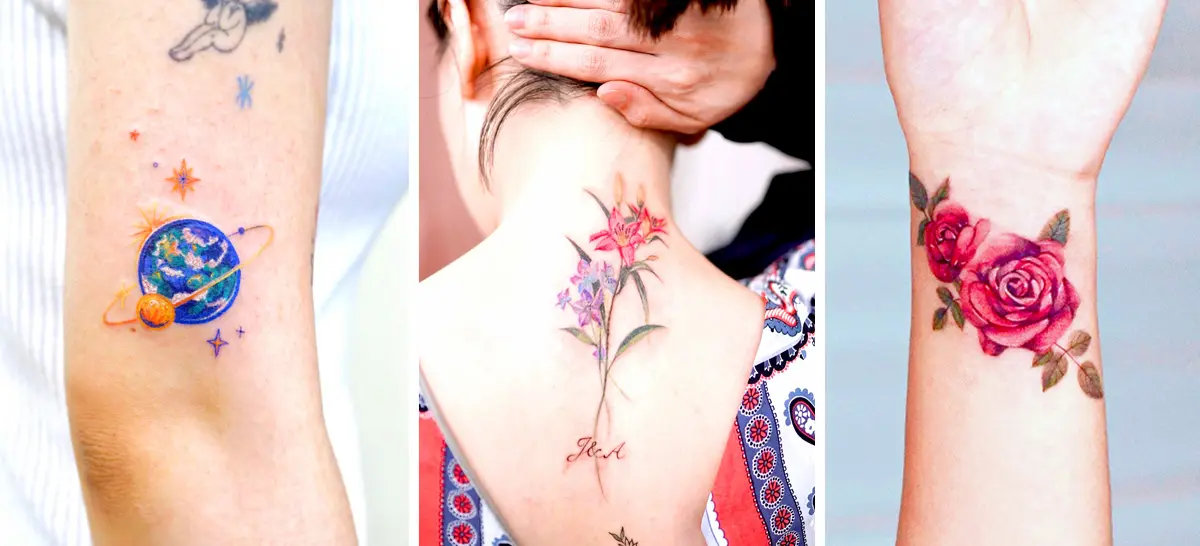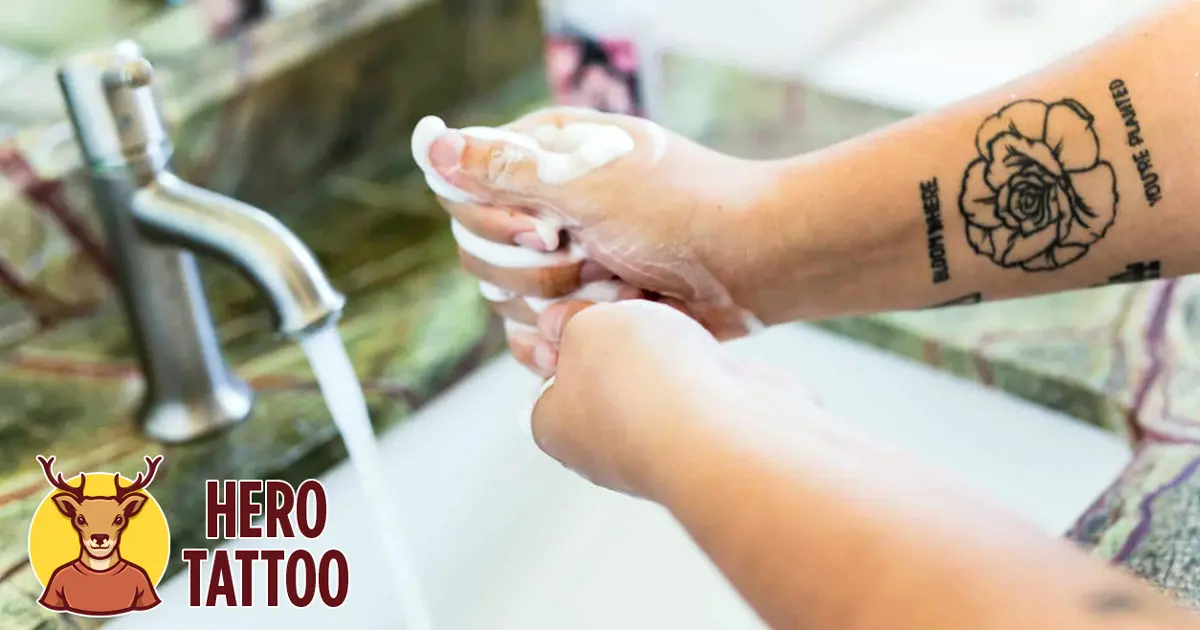When it comes to fashion, tattoos are always a good option; having an excellent tattoo may be a thrilling and enjoyable event that you will remember. The problems of appropriate tattoo healing and avoiding issues during and after the tattoo procedure, on the other hand, lurk behind all of the joy and excitement of getting a tattoo.
To prepare for your tattoo session, you must first educate and enlighten yourself about the procedure. Throughout the following paragraphs, we’ll go over some of the most prevalent tattoo side effects and dangers that everyone should be aware of. So, without further ado, let’s get this show on the road.
The Most Frequently Occurring Tattoo Side Effects
Generally speaking, tattoo difficulties or side effects occur either during the tattooing process itself or immediately after the tattoo has been completed. The reason for this is that a tattoo is considered an open wound. Therefore, for several reasons, from exposure to germs and infectious particles to poor healing, the first 24 to 48 hours are usually the most critical to avoid side effects and problems after a medical procedure.
The following are the most common adverse effects if something does occur; however, they may also occur in other ways.
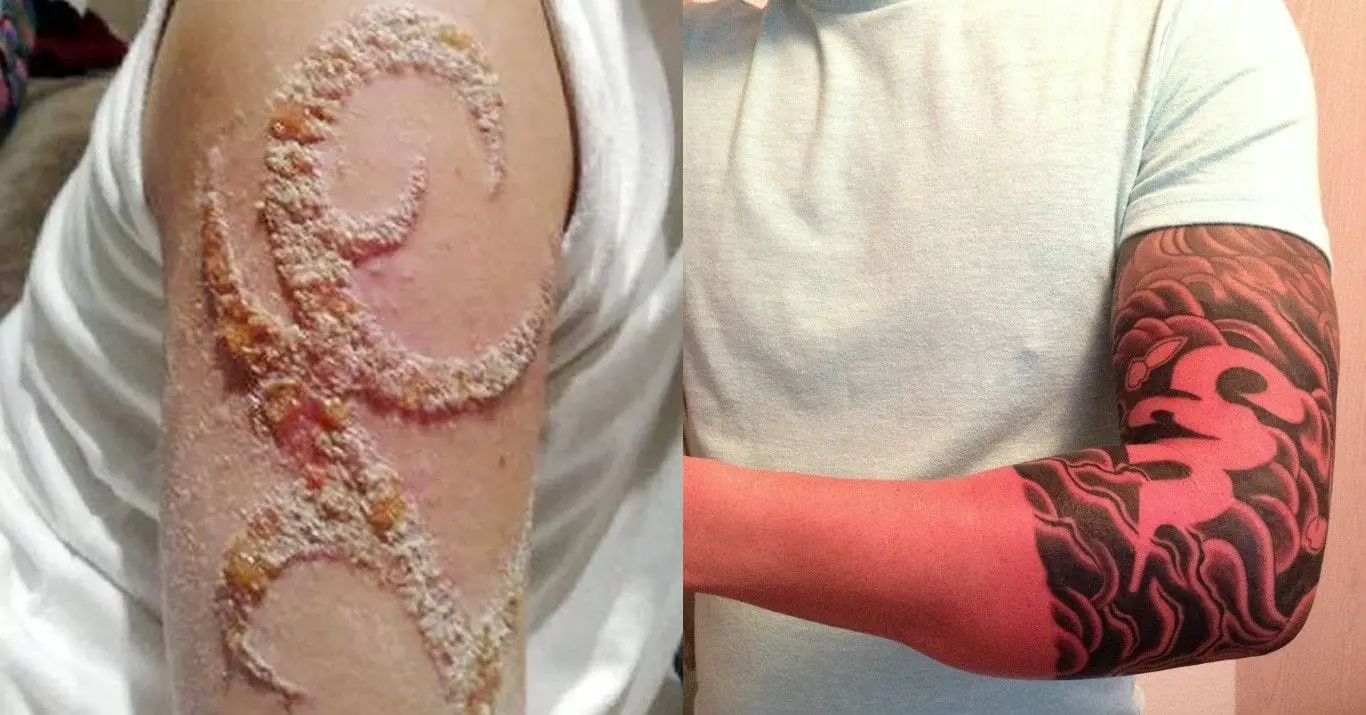
Infection of the Skin
Skin infections are one of the most common adverse effects of tattoos, and they may be pretty painful.
- However, various factors contribute to the development of skin infections.
- Take, for example, a person who has been tattooed using infected equipment.
- During the tattooing procedure, one has been exposed to germs, viruses, and pathogens, among other things.
- One has skin and blood illnesses, and the other has a bacterial infection.
- It is possible to have a tattoo done in an unsafe atmosphere.
- It is also possible to have a tattoo done by an amateur who did not clean the setting or did not use new and clean gloves.
- One failed to adhere to an appropriate aftercare regimen.
- One person placed Vaseline on a freshly inked tattoo.
Skin infections are frequently seen in tattooed skin regions that are irritated and elevated. There is also significant seeping of the plasma and ink from the tattoo and, in some cases, bleeding from the tattoo.
The tattoo is unpleasant and painful, and it is possible to suffer elevated body temperature and fever-like symptoms due to the procedure. If you have any of these symptoms, you should seek medical care and antibiotic therapy as soon as possible.
Tattoo infections may not manifest themselves immediately. However, some issues manifest themselves after a week or two of the tattoo healing process.
Allergic Reactions
Allergies are becoming a typical adverse effect of tattooing, as is skin irritation. Moreover, they can arise from a variety of causes.
The first and most apparent cause is the ink used for tattooing you. If a tattoo artist uses low-quality ink that does not have the ingredients listed on the label, the ink may include hazardous components and plastic. Black ink is the least likely to cause allergic reactions. Colors such as yellow, red, green, and blue ink pigments, on the other hand, are the most allergenic among people.
Hives and extreme itching are some of the symptoms of an ink allergy. Other symptoms include skin swelling and rising, redness, and rashing. Anyone experiencing such symptoms should seek medical attention and correct treatment immediately. If you have an adverse response to the tattoo, the odds are that the tattoo will not look nice.
Another cause for allergic responses to develop during tattooing is the usage of tattoo artists’ gloves, which might trigger the reaction. There is a good reason why professional tattoo artists do not use latex gloves. Many people are unaware that they are sensitive to latex. If the tattooed region comes into contact with latex during the tattooing process, it might be an allergic response.
To be safe, if you’re unsure whether or not you’re allergic to latex, request that your tattoo artist wear latex-free gloves if they don’t already do so. Nitrile gloves are non-irritating and non-allergic, making them the finest choice for tattooists in general.
Cancer Signs Covering
Although it may not appear to be a direct adverse effect of tattoos, sadly, tattoos can conceal indications of skin cancer, mainly if the tattoo is significant.
Dermatologists are unable to detect changes in the skin around a tattooed spot.
Early indicators of skin cancer, for example, include a change in the color or pigmentation of the skin and a change in the appearance of moles. In addition, when the skin is coated with ink, the skin changes, but the difference is not apparent to the doctor because of the ink.
Dermatologists may miss early skin changes in such circumstances, hurting cancer growth and therapy later on. Because of this, if you want to get a tattoo, it is suggested that you have your skin evaluated to see whether you are at risk of developing skin cancer or significant skin changes before getting one.
It is usually advisable to acquire smaller tattoos because larger tattoos make it even more difficult to notice changes in the skin’s appearance.
Issues Relating to Health
If a tattooed person requires an MRI, there is a good possibility that the tattooed person is experiencing some significant problems with the tattoo. Recent research has revealed that metal-based ink reacts with MRI (magnetic resonance imaging) and can cause the tattoo to rise, inflate, and even burn when the scanner is used.
There was one single example when similar MRI data were observed. A man with tattoos was undergoing a spinal MRI. As a result of the response to the ink, the guy had second-degree skin burns, swelling, and lifting of the tattooed skin on his arms and legs.
According to the scientists who conducted the study, such situations occur due to electromagnetic interactions caused by metallic compounds included in tattoo pigments, one of which is iron oxide. As a result, specialists advise individuals to avoid getting tattoos done with ink that contains iron. However, if they have such tattoos, they must contact the doctor as soon as possible.
Issues Relating to Sweating (Body Function)
No matter how tiny or enormous, having a tattoo will impact how much sweat the tattooed skin produces. Because sweating is a normal process and a vital physical function that assists the body in cooling down, this might be a severe problem. According to the same studies, according to current research, non-tattooed skin secretes at a 100 percent rate, whereas tattooed skin secretes at a rate that is 50 percent less.
Now, why is this such a big deal? As you sweat, your skin reabsorbs salt and electrolytes that have been released as a result of sweat. Unfortunately, if the skin has been tattooed, it will not reabsorb salt and electrolytes, preventing it from cooling down properly. This can result in severe thermoregulatory problems, especially if the tattoo is placed in a region with a high concentration of sweat glands.
Diseases of the Bloodstream
Getting a tattoo infection due to using contaminated instruments or ink isn’t the only risk associated with getting a tattoo done. In 2012, the Food and Drug Administration (FDA) connected tainted ink to many cases of blood-borne illnesses and multi-state bacterial outbreaks. Suppose you’re not familiar with the word. In that case, blood-borne disorders include diseases such as hepatitis B and C and HIV (also known as the human immunodeficiency virus, or HIV).
The majority of the cases were traced back to the tattoo ink used. More than ten percent of all tattoo ink bottles that have not been opened are infected with germs. In addition, the fact that ink is regarded as a component of cosmetics means that there is little information available about the manufacturing process or the ingredients used in creating ink. Consequently, the ink may be introduced into the market without being subjected to FDA restrictions and standards.
So, are tattoos considered safe?
The fact that tattoos are safe might be challenging to the state after going over all of the potential adverse effects of getting a tattoo.
However, we must be practical in this situation. If you go to a professional tattoo shop and get a tattoo done by a skilled tattooist, you will not have any severe problems afterward. If you adhere to the recommended aftercare procedures, you’ll reduce your chances of contracting an infection or developing problems. If you go to the doctor and get your skin checked for possible allergies and disorders, you’ll be able to reduce the likelihood of experiencing an adverse response.
To limit the adverse effects and hazards associated with having a tattoo, you may take a few precautions before getting one.
You don’t care where you get your tattoo or if the tattooist utilizes clean, sterilized instruments and ink shouldn’t surprise you if you get a tattoo infection or other major problem.
Concluding Remarks
When done and cared for correctly, Tattoos are regarded to be completely safe. In other words, unless you have a skin condition or are in danger of an allergic response, getting a tattoo at a competent tattoo shop should be no problem.
You should seek medical assistance right once you discover indicators of problems, such as rashes or redness and swelling or elevated pain levels, or even a fever. As the last point to consider before getting a tattoo, remember that the ink on your skin is intended to be permanent. As a result, if any responses develop, they may be permanent or chronic. So, before getting a tattoo, conduct your study and carefully consider the advantages and disadvantages.
It is better to give than to receive!
